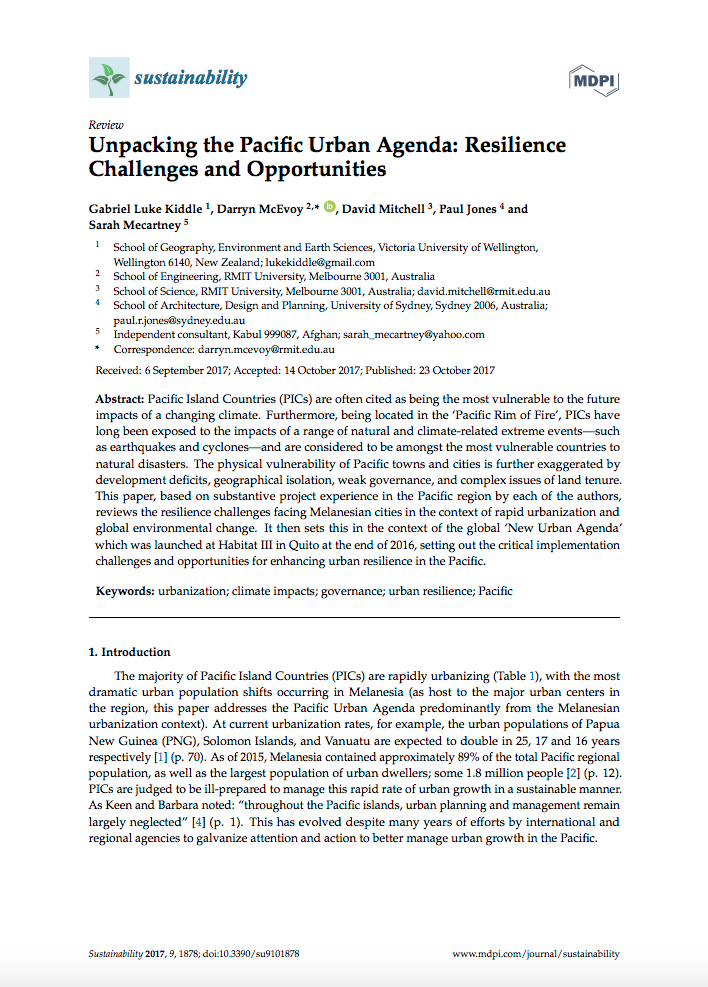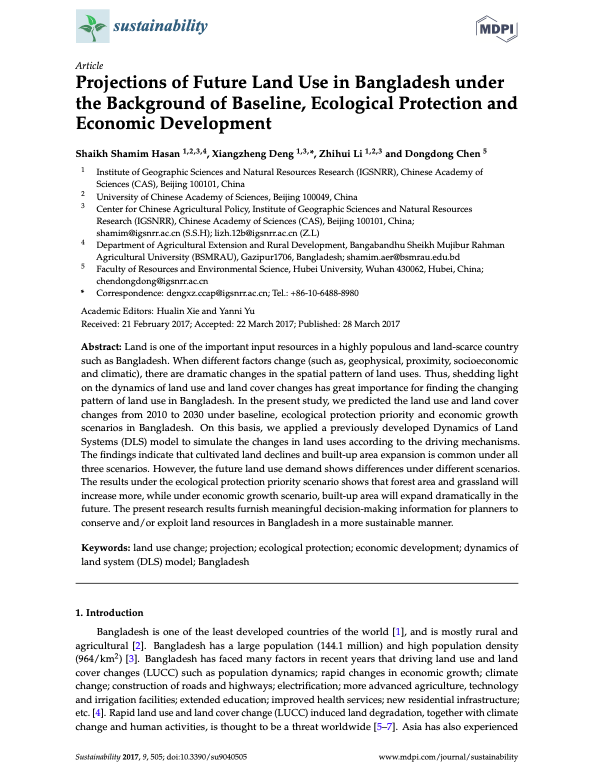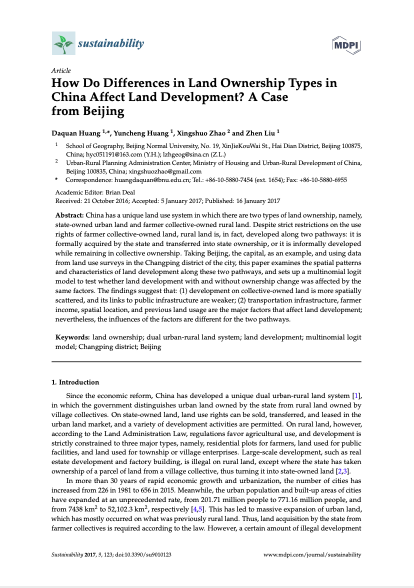Location
Sustainability (ISSN 2071-1050; CODEN: SUSTDE) is an international, cross-disciplinary, scholarly and open access journal of environmental, cultural, economic, and social sustainability of human beings. Sustainabilityprovides an advanced forum for studies related to sustainability and sustainable development, and is published monthly online by MDPI.
Sustainability is an Open Access journal.
Members:
Resources
Displaying 416 - 420 of 498Factors Influencing Farmer’s Decision-Making Behavior on Rural Construction Land Transformation
In order to protect cultivated land and balance farmers’ needs and shortage of land, the Chinese government introduced policies to rearrange land use in rural areas. However, many problems, such as unused rural construction land and illegally occupied land, have occurred through implementing land use policies. Rural construction land transformation has been promoted to solve these problems. This transformation was designed to let farmers voluntarily transforming their idle rural construction land.
Land-Acquisition and Resettlement (LAR) Conflicts: A Perspective of Spatial Injustice of Urban Public Resources Allocation
Land acquisition and resettlement (LAR) is an important step in urban development. As one of the ‘externalities of development’, LAR conflicts have affected social stability and development in rural areas of China. With social conflict research shifting from value identity to resource allocation, few studies have examined the relationship between the spatial injustice of urban public resources and LAR conflict.
Unpacking the Pacific Urban Agenda: Resilience Challenges and Opportunities
Pacific Island Countries (PICs) are often cited as being the most vulnerable to the future impacts of a changing climate. Furthermore, being located in the ‘Pacific Rim of Fire’, PICs have long been exposed to the impacts of a range of natural and climate-related extreme events—such as earthquakes and cyclones—and are considered to be amongst the most vulnerable countries to natural disasters. The physical vulnerability of Pacific towns and cities is further exaggerated by development deficits, geographical isolation, weak governance, and complex issues of land tenure.
Projections of Future Land Use in Bangladesh under the Background of Baseline, Ecological Protection and Economic Development
Land is one of the important input resources in a highly populous and land-scarce country such as Bangladesh. When different factors change (such as, geophysical, proximity, socioeconomic and climatic), there are dramatic changes in the spatial pattern of land uses. Thus, shedding light on the dynamics of land use and land cover changes has great importance for finding the changing pattern of land use in Bangladesh.
How Do Differences in Land Ownership Types in China Affect Land Development? A Case from Beijing
China has a unique land use system in which there are two types of land ownership, namely, state-owned urban land and farmer collective-owned rural land. Despite strict restrictions on the use rights of farmer collective-owned land, rural land is, in fact, developed along two pathways: it is formally acquired by the state and transferred into state ownership, or it is informally developed while remaining in collective ownership.







